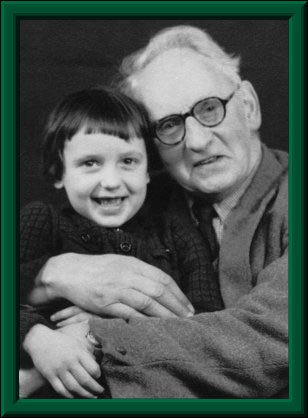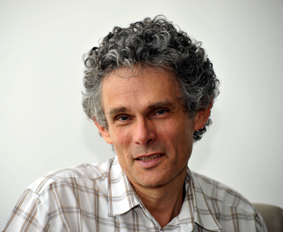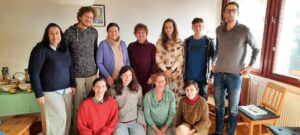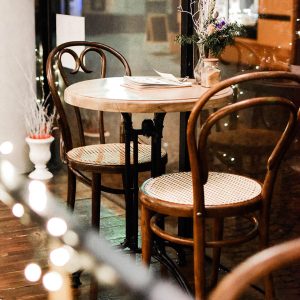A.S Neil emphasized, that when he established his school in 1921 that he wanted to build a community where “children are free from the authority of adults”. On the other hand, Neil was famous for his provocative, often extreme, sometimes even dogmatic statements. All this might have given him popularity in the 1960’s, but he also lost it when the counterculture of the sixties burned out. Yet, there are a lot of truth in his basic ideas, which should be taken to heart and be considered. Because of this, it might worth to specify what should we say instead of “free from adult authority”.
Trusting adults is very important for children. It is essential for their survival from their birth to trust the adults around them. We can call this “turning to the adults with natural trust”, in other words it means adults have natural authority over children.
The trouble starts when this natural authority is not used, or used in a compulsory, aggressive way, or, if we phrase it differently, the adults rely on their compulsory authority. As a consequence children’s will trust them less and less, their natural authority the surrounding adults have will decrease. This is generally true: the more one relies on compulsion, the more he or she will lose his or her natural authority. There are many ways to keep this natural authority: asking the children’s opinion, honest discussion of problems, explaining external forces, and so on. If parents, and other adults are clever, they will keep the children’s trust and, and the relationship between the adult and the child will turn into one that will increasingly resemble a friendship. All this doesn’t mean that in a family the child will get the right to decide alone, or even having a vote in family matters, though these areas can develop with age. Naturally, problems will arise, when these rights are not tied with responsibilities, or they are extended to areas, where children are not mature enough, or keeping areas what the child could handle under control.
This also means, that parents are also the teachers of their kids, in a good way, as George Dennison said in relation to schools:
The idea of school not perhaps in its present bureaucratized form–is one of the most powerful social inventions that we possess. It rests squarely on the deepest of necessities and draws on motives we could not disavow even if we wished to. Teaching is one of the few natural functions of adults. Vis-à-vis the young. We simply cannot escape it. Too, our legitimate demand of the young–that in one style or another they be worthy inheritors of our world–is deeply respected by the young themselves. They form their notions of selfhood individual pride, citizenship, etc., in precisely the terms that we put forward, converting our demands into goals and even into ideas of glory. I cannot believe all this is so feeble that we need to rest the function of education upon acts of compulsion, with all the damage this entails. (George Dennison: The Lives of Children 1969)
As the children grow, the moment will arrive when we have to confront as they want to teach the child who was just taken out of the family, is taught in a way based on compulsion, and would not take into consideration that the foundation of development is the natural authority and freedom from compulsion. Those adults who meet the children at a later age will not have this natural authority over them. More specifically, if the parents relied solely on their natural authority, the child will approach other adults with a certain trust, which again, might be called natural authority.
However, if the parents relied on their compulsory authority, the resulting distrust will show, and the child will not trust other adults either, and listen only to compulsory orders. Nevertheless, every adult has the chance to build a good, trusting relationship with the child, which, once again can be called natural authority. The ways of doing it are similar to the parents keeping their natural authority. Joint activities without compulsion, discussions, debates, listening, and so on.
One of the most important part of all this is how the school is organized by the adults and teachers. A crucial point in building a natural authority could be to run a real, working self-government. The true self-government lessens compulsion. With self-government interpersonal conflicts can be solved without aggression, school-meetings can serve justice with creating and keeping school-laws. It is the school’s self-government which can affect even problem children, prompting their trust to grow toward surrounding adults.
The result of this growing trust will be their developing self-confidence, which leads to their growing interest toward the world around them. This interest then can be called “desire to learn”. This desire to learn is not the same the compulsory school tries to induce in children with so called motivation. This motivation comes from within, and its base is trust and self-confidence.
Naturally not every school with self-government is capable of this: there is no use of having certain organizations, if they don’t serve justice, if they can’t sort out interpersonal conflicts to the satisfaction of all parties. In that case children will lose their trust, they will lose their self-confidence and their desire to learn will die. Dennison phrased the same thing in the following:
You don t discover who you are I don t know where this vocabulary came from. You see it all the time in proposals for free schools, creating a climate of freedom so you can discover who you are. When someone says, I want to know who I am, what he really means is that he hasn’t found the activities, the friends, and the loyalties that he can give himself to. These are not inside the self. They’re all outside. And you discover them by looking outside. And when you find them, you don t feel that you’ve discovered yourself, you feel that you’ve discovered friends, activities, and loyalties.
In conclusion, we could say that Neil would have handled the problem better if he pointed out the difference between natural and compulsory authority, and would have written that he wants to build his school with eliminating the compulsory authority, as he actually did. Maybe when democratic schools can communicate those better, they will win over more supporters, who, having their natural authority intact will be more inclined to open democratic schools or join existing ones as a parent or as a teacher.
(translated by Anett Veg)
Hungarian translation of this article








